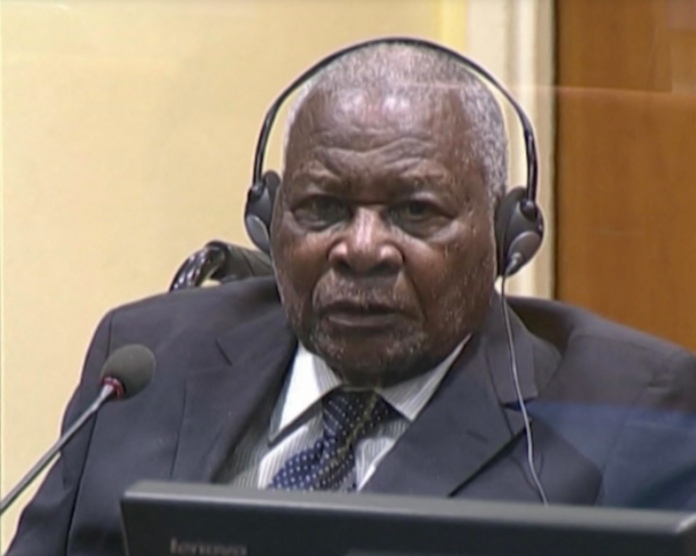In a significant development, the judges overseeing the case of Félicien Kabuga, a Rwandan businessman accused of genocide, have ruled that he is “unfit” to undergo his trial. The former businessman, who is at least 87 years old, has been facing charges of genocide, conspiracy to commit genocide, and crimes against humanity for extermination related to his alleged involvement in the 1994 Rwandan genocide. While he will not be released, a unique and unprecedented procedure resembling a trial will be initiated, although the three judges will not be able to deliver a guilty verdict.
Félicien Kabuga was arrested in May 2020 in Asnières-sur-Seine, a suburb of Paris, where he had been residing for several years. His lawyers had cited his deteriorating health even at the time of his arrest. Originally scheduled to be tried in Arusha, Tanzania, at the newly established premises of the former International Criminal Tribunal for Rwanda (ICTR), it was deemed too risky for Kabuga to travel. As a result, he was brought to The Hague in October 2020 for better medical care and has been under medical supervision since then.
Unfit to Stand Trial
After a three-month period of suspending witness hearings by the prosecutor’s office, the judges reached their decision, following the advice of experts. In March, two psychiatrists and a neurologist who examined Félicien Kabuga unanimously diagnosed him with dementia of vascular origin. Consequently, the judges declared Kabuga unfit to stand trial due to his diminished mental capacity.
Unique Procedure and Continued Prosecution
Despite being deemed unfit, Félicien Kabuga will remain subject to a special and unprecedented procedure, resembling a trial as closely as possible, but lacking the power of the judges to pronounce a guilty verdict. The prosecutor will continue to present and record evidence to establish Kabuga’s genocidal intent during the events of 1994 and his intention to destroy the Tutsi population. Kabuga will continue to receive medical supervision and can choose to participate in future hearings via video conference or in person. His defense lawyers have the option to appeal the decision.
Preserving Peace and Pursuing Justice
The magistrates responsible for the decision highlight the exceptional circumstances and express their hope that implementing this special procedure will contribute to maintaining peace in Rwanda. They emphasize that closing the trial at this stage would be inappropriate given the importance of combating crimes against humanity and addressing the accusations of genocide, which are significant for the victims and survivors of these crimes.
The End of International Justice for the 1994 Genocide
Félicien Kabuga is expected to be the final suspect of the 1994 genocide to be tried before international justice. This reality raises existential questions, according to several jurists. Subsequently, the judges will have to retire and close the doors of this tribunal, as one of the remaining fugitives, former police officer Fulgence Kayishema, arrested in late May in South Africa upon the request of the ICTR, is set to be extradited to Rwanda for trial. The ICTR had relinquished jurisdiction over the case a decade ago.
































































